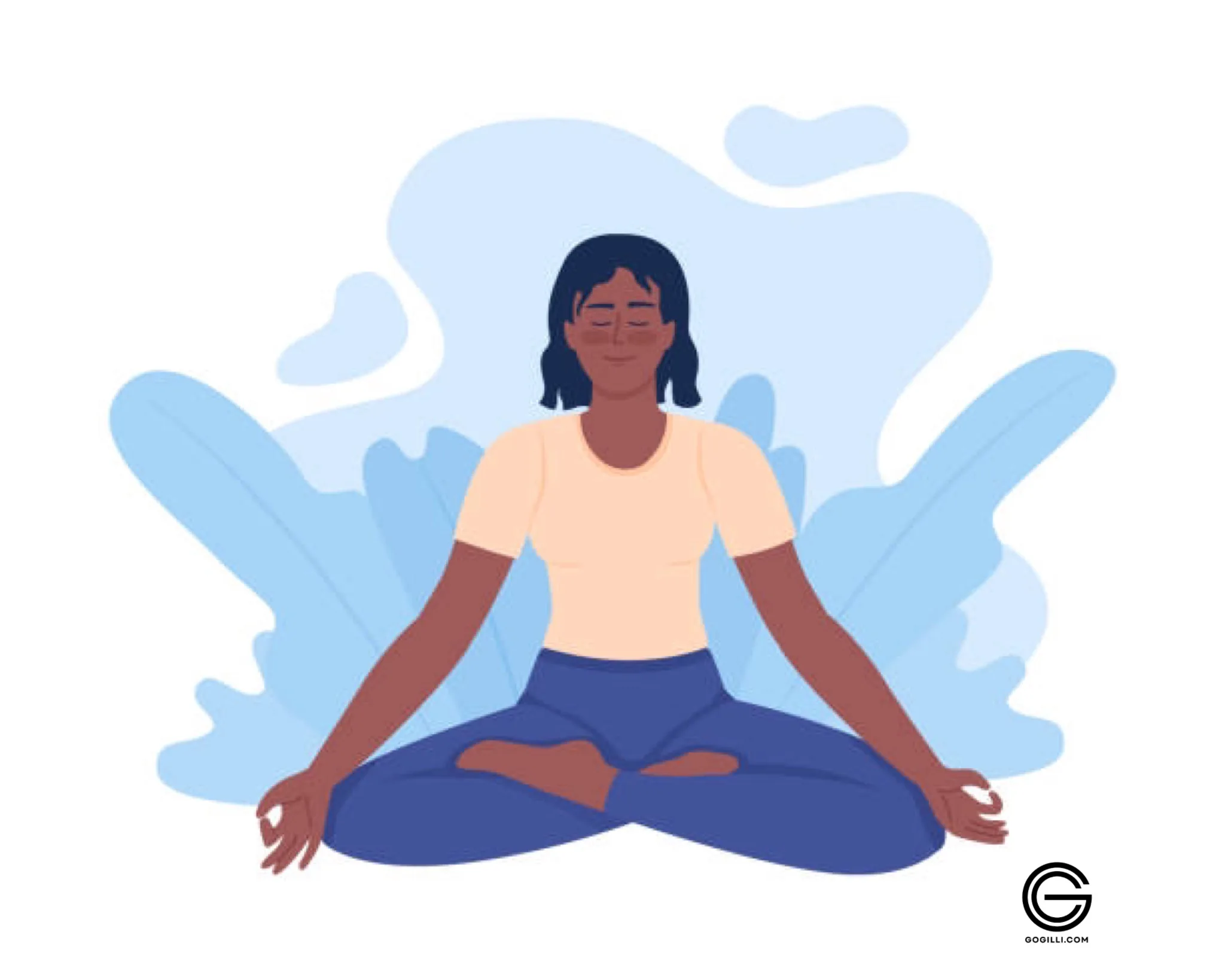Yoga is a mind-body exercise that enhances both physical and emotional health. One of the key benefits its ability to discipline the mind, leading to improved focus, concentration, and overall mental clarity.
cultivates mindfulness, self-regulation, and stress management techniques, which help individuals cope better with challenges and maintain composure in stressful situations. Additionally, often incorporates meditation, further enhancing mental discipline and promoting inner peace.
It’s simple to become engrossed in the never-ending loop of thoughts, anxieties, and diversions in the rush and bustle of contemporary life. It is hard to attain calm and clarity when our minds are rushing all the time. Here’s where yoga comes into play.
It is a comprehensive practice that includes ethical precepts, breathing techniques, physical postures, and meditation. A more tranquil and contented existence can be attained through practicing yoga, which helps us develop mental discipline.
The Relationship Between the Mind and Body
Yoga shows us the connection between the mind and body. Our minds are prone to becoming stiff and stressed out when our bodies are. On the other hand, our thoughts are also inclined to be peaceful and comfortable when our bodies are. Yoga teaches us how to control our breath and calm our bodies, which helps us end the cycle of tension.
The Role of Breath
The link that connects the body and mind is breath. Stress causes our breathing to become fast and shallow. Anxiety, panic attacks, and other issues with one’s physical and mental health may result from this.
We learn to slow down our breathing and pay attention to each breath in and out through yoga. This aids in nervous system relaxation and fosters tranquility and well-being.
Focus and Concentration
To maintain correct alignment and technique, yoga postures and breathing techniques call for a concentrated mind.
This enhances one’s capacity for concentration and present-moment awareness, decreasing outside distractions and enhancing mental clarity in general.

Self-Regulation and Impulse Control
Yoga helps practitioners learn self-control by directing their breathing, postures, and movements. This mental self-regulation aids in mood management, the reduction of impulsive conduct, and conscious decision-making.
Stress Management and Emotional Resilience
By encouraging relaxation, releasing tension, and balancing the neurological system, yoga helps people feel less stressed and anxious. This improves emotional resilience in turn, making it easier for people to handle difficulties and keep their cool under pressure.

Effective mental discipline is achieved through yoga’s holistic approach to physical and mental well-being, which improves focus, mindfulness, self-regulation, stress management, and emotional resilience. These advantages support mental health that is calmer, more balanced, and focused, enabling people to face obstacles in life with more poise and ease.
Meditating
Concentrating the mind on the here and now is the practice of meditation. It has the potential to be an effective tool for stress relief and mental discipline. Meditation comes in a variety of forms, but they all entail concentrating on the breath, the body, or a mantra.
meditation practices help develop mental discipline by teaching the mind to be silent, motionless and laser-focused on one thing. Through this exercise, one can develop inner peace, quiet the mind, and feel more at ease and healthy.

Ethical Principles
Ethical principles are another thing yoga teaches us. These guidelines are meant to make our lives more meaningful and caring. Among the yamas are continence, honesty, non-violence, and non-stealing. Among the niyamas are self-study, self-discipline, cleanliness, contentment, and surrender to a higher force.
The Advantages of Mental Discipline
There are numerous advantages to mental discipline. We can better manage stress, lessen anxiety, and enhance our general mental health when we have emotional and mental control. Additionally, we have a higher chance of making sensible choices and leading happier lives.
How to Begin Practicing Yoga
There are many materials available to assist you in getting started if you’re interested in giving yoga a try. Worldwide, there are numerous yoga studios and online yoga courses to choose from. Additionally, you can find videos and books that teach you how to do yoga at home.
Regular yoga practice fosters a state of awareness in which practitioners become more attuned to their thoughts, feelings, and physical sensations without passing judgment. This increased awareness fosters a more tranquil and balanced mental state by lowering worry, rumination, and overthinking.
Yoga is a process rather than a final goal. It is an ongoing process of development and learning. You will gain more knowledge about the world and yourself the more you practice. You can have a more contented and serene existence by doing yoga, which can help you develop mental discipline.
I hope this article has been helpful. If you have any questions, please feel free to leave a comment below.
for more healthy wealthy tips please visit
